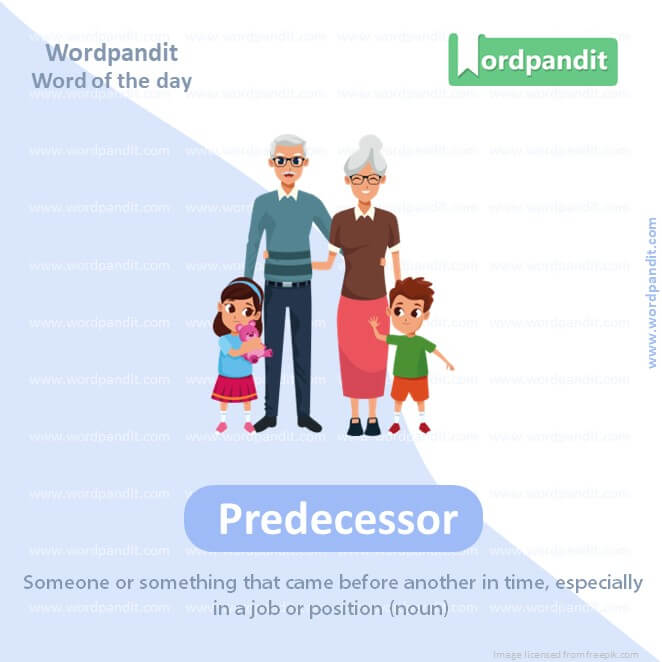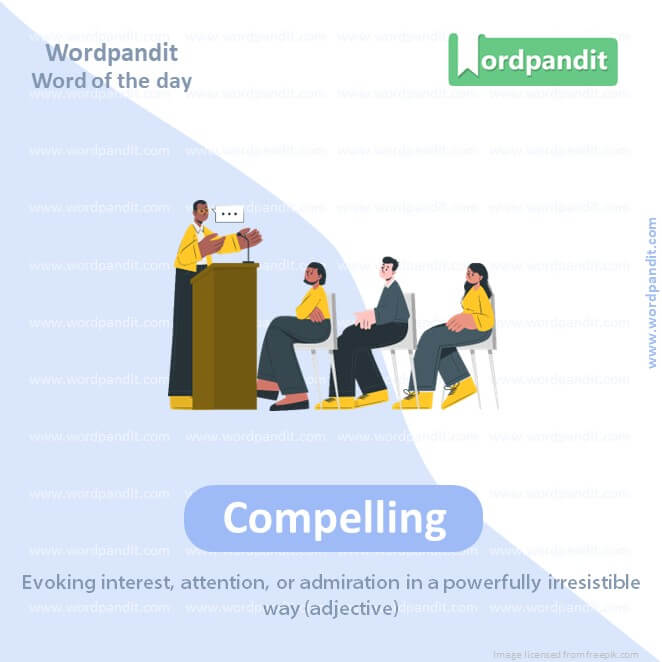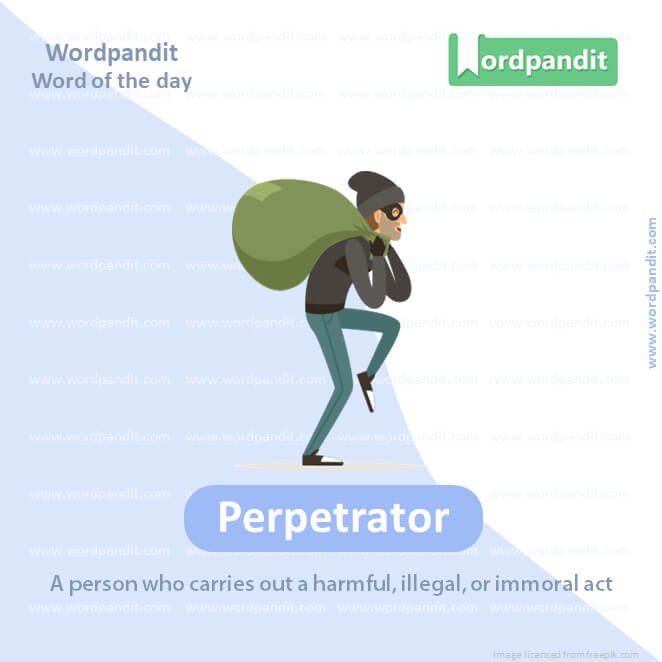Daily Vocabulary Words: List of Daily Used Words in Leading International Newspapers
Hi there. Welcome to this special section @ Wordpandit.
Our endeavour here is very simple: to highlight important daily vocabulary words, which you would come across in leading newspapers in the country. We have included the following newspapers in our selection:
• The New York Times
• The Washington Post
• Scientific American
• BBC
• The Guardian
• Psychology Today
• Wall Street Journal
• The Economist
We are putting in extensive work for developing your vocabulary. All you have got to do is be regular with this section and check out this post on a daily basis. This is your repository of words that are commonly used and essentially, we are posting a list of daily used words. Hence, this has significant practical application as it teaches you words that are used commonly in leading publications mentioned above.
Visit the website daily to learn words from leading international newspapers.

WORD-1: Feasibility
CONTEXT: A feasibility study on CERN’s Future Circular Collider identifies where and how the machine could be built—but its construction is far from assured.
SOURCE: Scientific American
EXPLANATORY PARAGRAPH: Imagine you have a big box of Legos and you want to build a huge castle with them. Before you start, you think about if you can actually do it. Do you have enough Legos? Will it fit in your room? This is like checking if your castle plan is a good idea and if you can really make it happen. That’s what feasibility means—figuring out if your idea can work out in real life.
MEANING: The possibility that can be made, done, or achieved, or is reasonable (noun).
PRONUNCIATION: fee-za-BIL-i-tee
SYNONYMS: Practicality, Possibility, Viability, Doability, Achievability, Workability
USAGE EXAMPLES:
1. We need to assess the feasibility of finishing the project in three months.
2. The feasibility study will tell us if it’s a good idea to build the new park.
3. They questioned the feasibility of the proposed plan due to limited resources.
4. Her idea is interesting, but I doubt its feasibility.

WORD-2: Predecessor
CONTEXT: Details of CERN’s plan emerged from a mid-term report studying the feasibility of the Future Circular Collider (FCC), which would dwarf its predecessor, the 27-kilometre LHC at CERN, Europe’s particle-physics laboratory near Geneva, Switzerland.
SOURCE: Scientific American
EXPLANATORY PARAGRAPH: Think about the teacher you had last year. This year, you have a new teacher. The teacher from last year is like a stepping stone that came before your current teacher. In the same way, if you had an old toy and then got a new one, the old toy would be the one that came before. That old toy or last year’s teacher is called a predecessor—it’s what or who came before something or someone else.
MEANING: Someone or something that came before another in time, especially in a job or position (noun).
PRONUNCIATION: preh-DEH-suh-sor
SYNONYMS: Forerunner, Ancestor, Forebear, Precursor, Antecedent, Former
USAGE EXAMPLES:
1. Our new principal is introducing changes that are quite different from her predecessor.
2. The software update includes several features not found in its predecessor.
3. He studied the work of his predecessors to avoid making the same mistakes.
4. The museum displayed artifacts from the city and its predecessors.

WORD-3: Compelling
CONTEXT: Fabiola Gianotti, CERN’s director-general, told journalists that the strategy found the FCC to be “the most compelling scientific instrument” of those it considered.
SOURCE: Scientific American
EXPLANATORY PARAGRAPH: Imagine you’re watching the most interesting cartoon that you just can’t stop watching because it’s so exciting and fun. That feeling when you really, really want to see what happens next because it’s so gripping? That’s what compelling means. Something that’s so interesting or important that you feel you must pay attention to it or believe in it.
MEANING: Evoking interest, attention, or admiration in a powerfully irresistible way (adjective).
PRONUNCIATION: kuhm-PELL-ing
SYNONYMS: Fascinating, Convincing, Persuasive, Captivating, Enticing, Engrossing
USAGE EXAMPLES:
1. The book was so compelling that I read it in one sitting.
2. She made a compelling argument for changing the school policy.
3. The mystery movie was compelling, keeping viewers on the edge of their seats.
4. His reasons for moving to the city were compelling.
WORD-4: Collides
CONTEXT: Gianotti said that the European Strategy for Particle Physics had found that the FCC had greater physics potential than a linear collider, because it could produce Higgs bosons at a higher rate and because the same tunnels could later be used for a much higher-energy machine that collides protons.
SOURCE: Scientific American
EXPLANATORY PARAGRAPH: Imagine two toy cars racing towards each other on the same track. If they bump into each other, they crash. That crash, when they hit each other, is what “collides” means. It’s like when you’re running around and accidentally bump into your friend—you both collided!
MEANING: To come into conflict or crash forcefully (verb).
PRONUNCIATION: kuh-LYDZ
SYNONYMS: Crash, Smash, Clash, Bump, Impact, Hit
USAGE EXAMPLES:
1. The two cars collided at the intersection.
2. Their opinions often collide, leading to heated debates.
3. The soccer players collided while trying to head the ball.
4. Icebergs can cause serious damage if they collide with a ship.
WORD-5: Bosons
CONTEXT: Gianotti said that the European Strategy for Particle Physics had found that the FCC had greater physics potential than a linear collider, because it could produce Higgs bosons at a higher rate and because the same tunnels could later be used for a much higher-energy machine that collides protons.
SOURCE: Scientific American
EXPLANATORY PARAGRAPH: Imagine tiny, invisible particles that are all around us, kind of like the dots in a comic book that make up the pictures, but these are for the whole universe! These particles, called bosons, help things like light to move and even help the sun shine. They’re like the helpers of the universe that make sure everything works together.
MEANING: A type of particle in physics that follows specific statistical rules and is associated with forces or energy fields (noun).
PRONUNCIATION: BOH-zons
SYNONYMS: Particle, Quantum, Force carrier, Elementary particle, Subatomic particle
USAGE EXAMPLES:
1. Scientists study bosons to understand the fundamental forces of the universe.
2. The Higgs boson is a particle that gives other particles their mass.
3. Bosons contrast with fermions, the other main category of particles.
4. Discovering new types of bosons could change our understanding of physics.
WORD-6: Beams
CONTEXT: Lucchesi is part of a team studying an alternative technology for future colliders based on colliding beams of muons instead of electrons or protons.
SOURCE: Scientific American
EXPLANATORY PARAGRAPH: Imagine a big, strong piece of wood or metal that helps hold up buildings and bridges so they don’t fall down. This piece is called a beam. It’s like when you build a fort and use a long stick to keep the roof from caving in. Beams can also be lines of light that shine really bright, like the light from a flashlight cutting through the dark.
MEANING: Long pieces of wood or metal used to support weight in buildings or structures, and also rays of light (noun).
PRONUNCIATION: beemz
SYNONYMS: Girders, Rafters, Shafts, Rays, Bars, Supports
USAGE EXAMPLES:
1. The old barn’s wooden beams were starting to rot.
2. Sunbeams streamed through the windows at dawn.
3. Engineers checked the steel beams for signs of stress.
4. The lighthouse beams guided sailors safely to shore.
WORD-7: Titillating
CONTEXT: It’s a topic NASA and other space agencies have treated as taboo for decades—because let’s be real — nobody wants to explain to Congress why taxpayer dollars would be spent on something so titillating.
SOURCE: Scientific American
EXPLANATORY PARAGRAPH: Imagine watching a cartoon that makes you laugh and feel excited because it’s a little bit naughty or shows something surprising. That feeling of being tickled by something fun and a tiny bit naughty is what titillating means. It’s like hearing a secret that makes you giggle because it’s about something grown-ups find a little bit shocking.
MEANING: Exciting in a pleasurable or slightly naughty way (adjective).
PRONUNCIATION: TIT-uh-lay-ting
SYNONYMS: Stimulating, Exciting, Thrilling, Provocative, Enticing, Arousing
USAGE EXAMPLES:
1. The movie contained titillating scenes that sparked controversy.
2. He wrote a titillating story that captured everyone’s attention.
3. The advertisement was designed to be titillating to attract viewers.
4. The book’s titillating details made it a bestseller.
WORD-8: Prudish
CONTEXT: This prudish, head-in-the-sand approach worked well enough for managing the straitlaced, Boy Scout–like and overwhelmingly male astronaut crews of half a century ago.
SOURCE: Scientific American
EXPLANATORY PARAGRAPH: Imagine someone who gets really shy or upset about talking about anything that has to do with love or the body. They might not like jokes or movies about these things and prefer to keep everything very proper. This kind of shy feeling about these topics is what being prudish means.
MEANING: Excessively concerned with propriety and modesty, often in a way that’s overly cautious or narrow-minded (adjective).
PRONUNCIATION: PROO-dish
SYNONYMS: Puritanical, Straitlaced, Conservative, Modest, Squeamish, Overmodest
USAGE EXAMPLES:
1. Her prudish attitude made her blush at even the mildest jokes.
2. The prudish character in the play refused to discuss anything personal.
3. They accused him of being prudish for criticizing the modern art exhibit.
4. The novel’s explicit content shocked her prudish sensibilities.
WORD-9: Straitlaced
CONTEXT: This prudish, head-in-the-sand approach worked well enough for managing the straitlaced, Boy Scout–like and overwhelmingly male astronaut crews of half a century ago.
SOURCE: Scientific American
EXPLANATORY PARAGRAPH: Think of someone who always follows the rules very strictly and dresses very properly, never doing anything wild or crazy. They like everything to be just right and might not laugh at loud jokes or do silly dances. Being straitlaced is like being very serious and careful about following rules and behaving properly.
MEANING: Very strict in moral or social matters, often to the point of being rigid or overly cautious (adjective).
PRONUNCIATION: STRAYT-layst
SYNONYMS: Prudish, Conservative, Puritanical, Stuffy, Uptight, Conventional
USAGE EXAMPLES:
1. The straitlaced teacher insisted on strict discipline in the classroom.
2. Her straitlaced upbringing made it hard for her to relax at the party.
3. He led a straitlaced life, avoiding any form of indulgence.
4. The community was known for its straitlaced values and traditions.

WORD-10: Perpetrator
CONTEXT: Along these same personalizing lines, in five of six stories that used the word white, the victim and perpetrator knew each other, and the events involved impulsive crimes, personal vendettas or extortion.
SOURCE: Scientific American
EXPLANATORY PARAGRAPH: Think about someone who does something very naughty, like breaking a vase and then trying to hide it. This person, who did the naughty thing, is called a perpetrator. It’s a fancy word for someone who causes something to happen, usually something bad, like making a mess or breaking a rule on purpose.
MEANING: A person who carries out a harmful, illegal, or immoral act (noun).
PRONUNCIATION: PUR-puh-tray-tor
SYNONYMS: Culprit, Offender, Criminal, Wrongdoer, Malefactor, Delinquent
USAGE EXAMPLES:
1. The police are working hard to find the perpetrator of the crime.
2. Surveillance footage helped identify the perpetrator.
3. The community was shocked to learn the identity of the perpetrator.
4. Efforts are being made to bring the perpetrator to justice.
vocabulary kit
The gift of language lies not just in the syntax or grammar but majorly thrives on a rich repository of words- the vocabulary. Hence, the importance of vocabulary learning techniques is monumental in language acquisition. These techniques act as catalysts, accelerating the process of language learning, and seamlessly integrating new words into our daily discourse.
The first vital point in mastering vocabulary learning techniques is understanding its purpose. These strategies not just help one in memorizing an array of new words, but also assist in using them appropriately in different contexts. It broadens communication skills and creates a roadmap to better expression of thoughts and ideas.
One of the most commonly employed and impactful vocabulary learning techniques is the usage of flashcards. Flashcards offer visual stimulus which aids in imprinting the word and its meaning more effectively in our minds. Regular practice with flashcards helps cultivate language fluency over time.
Another crucial technique is to learn words in context. This simply means learning a word by associating it with a particular sentence, paragraph or story. This context-based approach remarkably boosts our understanding of the nuanced use of vocabulary in varying scenarios.
Moreover, incorporating digital tools or language learning apps can be an effective method in our vocabulary learning techniques kit. These platforms provide interactive learning experiences with gamified vocabulary exercises, making the learning process greatly enjoyable and engaging.
Finally, regular revision is a cornerstone of these vocabulary learning techniques. Repeated revisions ensure that the learned words do not slip away and rather, become firmly anchored in our memory.
Indeed, vocabulary learning techniques are much more than mere memorization strategies. They nurture linguistic competence, expanding expressive capabilities and fostering effective communication. Hence, investing time in understanding and practicing these vocabulary learning techniques can pay rich dividends in enhancing one’s language proficiency.







